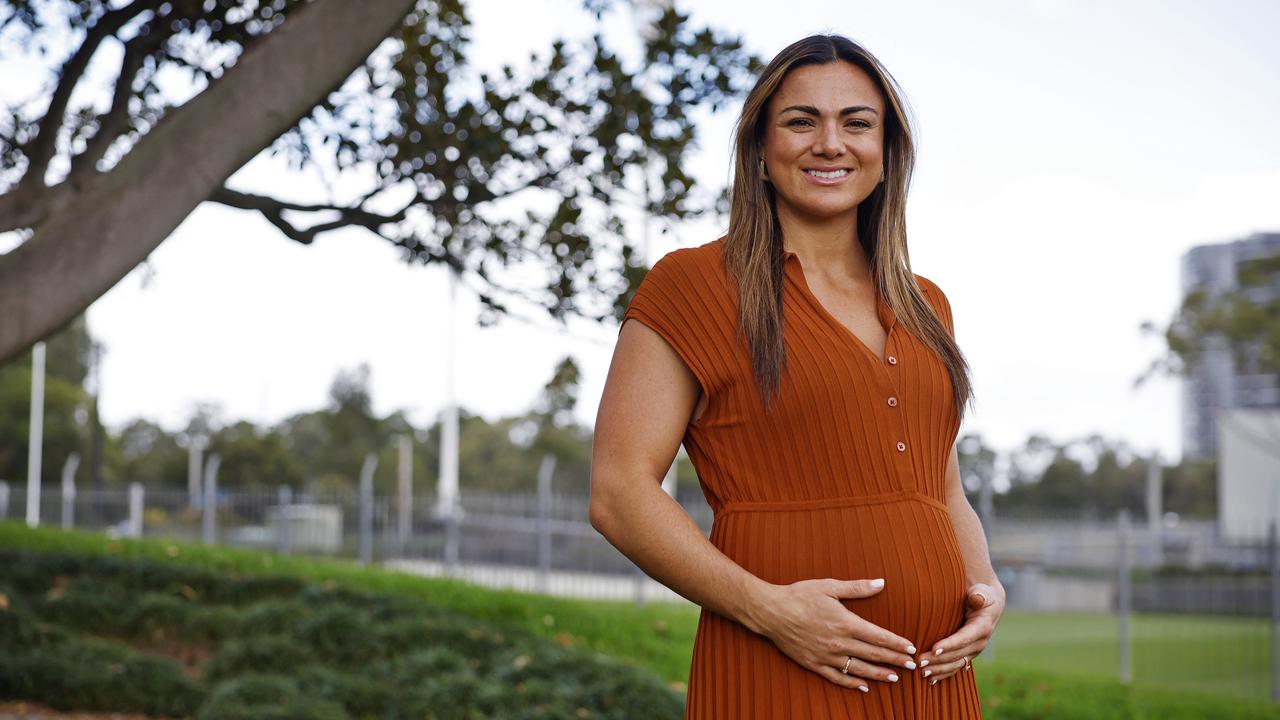Paul Kent: Bold move to bring NSW’s top cop Mick Fuller into NRL fold
Peter V’landys’ bold move to bring in NSW’s top cop onto the ARL Commission will be a big win for the code, writes Paul Kent.
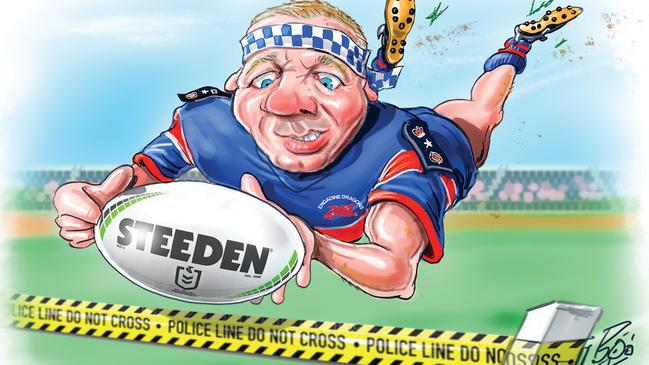
NRL
Don't miss out on the headlines from NRL. Followed categories will be added to My News.
In his days at the Engadine Dragons, he was a natural finisher said to possess a devastating turn of foot, or so went the old scouting reports, written on carbon paper.
“Brutal defender, too, I heard,” says Police Superintendent Gavin Wood.
That it comes from Wood says something about the pedigree of the soon-to-be-anointed NRL Commissioner Mick Fuller.
Wood certainly knows a footballer when he sees one. He was once among the exclusive few dozen that made up the NSW State of Origin coaching squad, blowing up footballs and exercising quality control at the buffet, where the advantage of recognising a natural finisher and possessing a devastating turn of foot could never be underestimated.
You could miss the glazed steak and be forced to settle for the tofu salad, for instance, a cardinal sin.
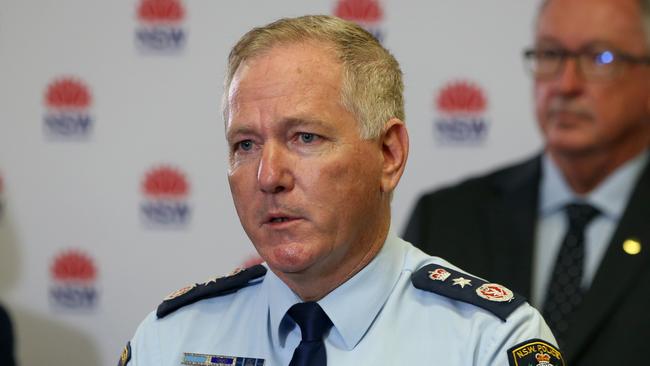
Fuller, who as the NSW Police Commissioner oversees about 18,000 police in NSW, is set to be rubber stamped as an ARL Commissioner next Friday.
It is a bold move from ARL Commission chairman Peter V’landys, who seems to be making a habit of it of late, and one that V’landys, in his forever determined way, is intent on making succeed.
Slowly, rung by rung, the NRL is fighting its way back to a place it occupied in the mid-1990s and was well on the way to cementing down: being the greatest football code in Australia.
Instead, Super League and the 20 years of infighting which followed shattered that. The AFL stole the ground and the NRL was forced to endure some lean years, in the management stakes, as the new commission fumbled from one poor decision to the next, never really sure what it was doing but certain it would not employ the people qualified to fix it.
Not anymore.
Piece by piece V’landys is assembling a crack squad that identifies and addresses the NRL’s shortcomings.
Fuller’s appeal for the commission comes in a form that V’landys understands about the NRL that the previous commission did not.
And that is as well as being a commercial entity, the NRL is a regulatory entity.
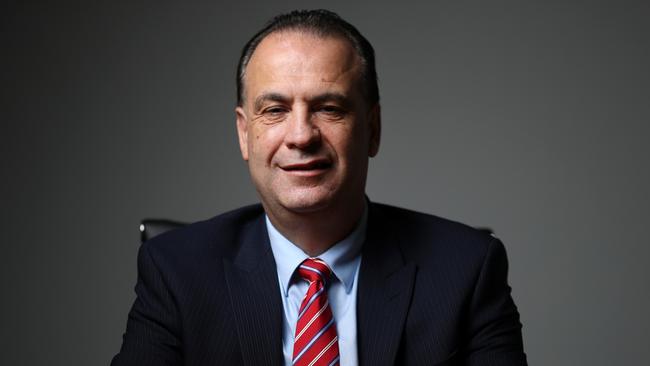
The ARL Commission was awfully weak regulating the game, a sin compounded because they performed so poorly on the commercial side as well.
When Parramatta was busted cheating the salary cap in 2016, by way of example, the NRL imposed an on-field sanction so disgracefully weak — a penalty of 12 competition points — it allowed the Eels the opportunity to win the premiership in the very same season in which they were caught cheating.
Nowhere else on earth would this happen.
Then chief executive Todd Greenberg explained it by saying he saw the devastation for Melbourne fans when their team was forced to play out the season for no points for cap cheating in 2010 and he didn’t want Parramatta fans to go through the same.
Good grief.
If you stand for nothing, you fall for everything. What is supposed to happen when clubs are caught cheating red-handed?
Nobody wanted to address the embarrassment an Eels premiership would have inflicted on the game if it had happened, let alone the injustice of it, and several Hail Marys were uttered when the Eels finally dipped out.
Aside from V’landys, who is also chief executive of Racing NSW, nobody on the commission has any regulatory experience. Fuller’s appointment will address that.
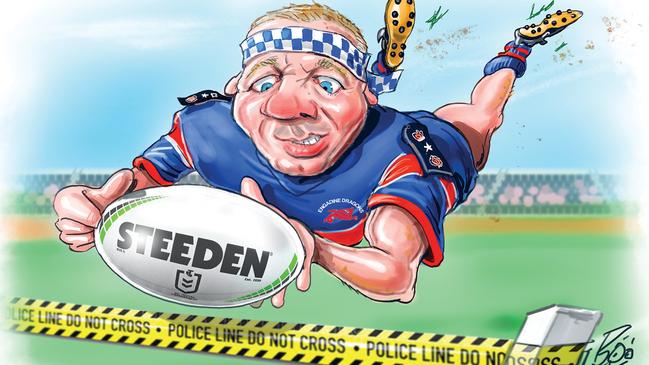
But it does not come without comment.
NSW Opposition leader Jodi McKay said on Friday: “I think Mick Fuller can be the police commissioner or he can work with rugby league, he cannot be both.”
McKay is already warming up the accusations of a conflict of interest from her rickety soapbox, criticisms you could set your clock by.
It means Fuller will need to be at his best to navigate through, though. Particularly given player behaviour is always the most contentious, and most emotive, conversation around the game.
Already the game is copping criticism for suspending Payne Haas for just three games despite also whacking him with a maximum $50,000 fine.
In this, the NRL has done a poor job of articulating a shift in perspective this season, failing to properly explain the shift towards fining players instead of suspending them so fans are not robbed of their performance.
Besides, players would much rather be suspended than fined.
It’s expected, at least early on, that Fuller’s expertise as the State’s highest-ranking cop will put him in good stead to adjudicate clear and consistent penalties.
But this is rugby league, so it is never that simple. And it could eventually pose problems for Fuller.
Part of his role as an ARL Commissioner is to protect the NRL brand.
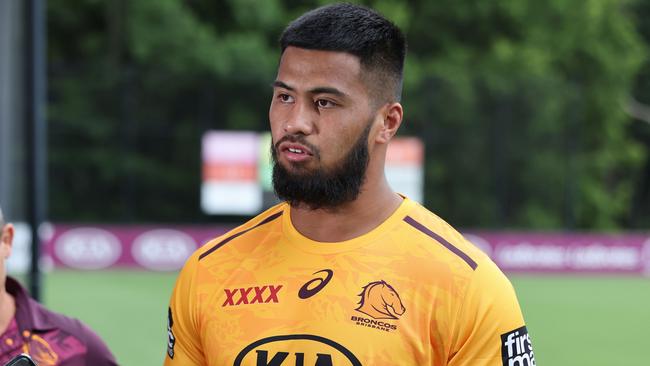
Yet as Police Commissioner, part of the job is to protect the police and their reputation, individually and collectively.
Casual observers need to travel back to only last year to see the potential problems for Fuller working in both roles.
The Raiders’ Curtis Scott was arrested and charged for being drunk and falling asleep under a tree.
Police woke him and soon after he was charged with assault and resisting arrest, charges the police eventually withdrew after the judge described them as “unlawful”.
Fuller defended the police, telling Ben Fordham on 2GB in September: “I am sympathetic to police that turn up to deal with drunken idiots every night.”
Now part of Fuller’s new job is to defend those same “drunken idiots”.
What happens if the Integrity Unit presents evidence to the commission of illegal activity — drugs, sexual assault, consorting — that Fuller as a sworn police officer is obligated to investigate?
All are realistic problems for the game. They will stay something the game needs to get a handle on because they will certainly come up at some point in Fuller’s tenure.
The safest ground the ARL Commission has is why Fuller will be appointed in the first place, his devastating turn of foot aside. The commission is appointing the man, not the position.
Unfortunately, not everyone will see it that way. But it is the best thing the game has going for it.
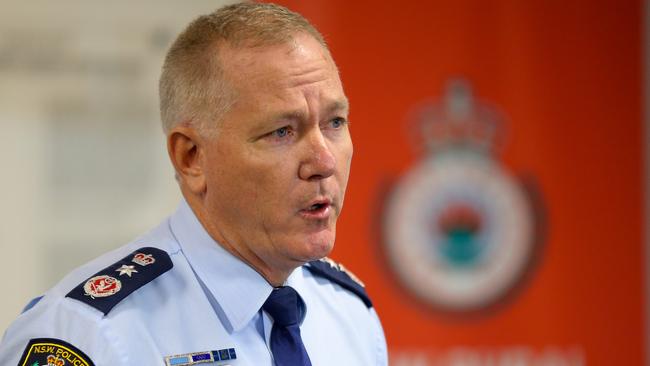
SHORT SHOT
In many ways COVID-19 was supposed to be an opportunity for many of Australia’s local boxers.
Given the difficulty of fighting overseas due to travel restrictions, it meant fighters were forced to look locally for opponents rather than hand-pick beatable boxers from overseas to pad their record. Don’t be concerned, it is not a local phenomenon, this happens all over the world.
It hasn’t helped Sam Goodman, who is 7-0 and one of the rising stars of the Australian fight game. A super-bantamweight, his last three fights have been early knockouts — testament to his talent.
But for the life of him, Goodman can’t get an Aussie to step into the ring with him. His last fight was nearly a year ago, on March 7.
“We have been willing to step up two or even three weight divisions but they still don’t want to fight him,” his trainer Joel Keegan said.
Goodman is a victim of his own talent.
The small talent pool in Australian boxing means most fighters know how they will fare against a rival before they ever step into the ring – because they have most probably already sparred them in the gym.
Quality sparring is hard to find in Australia, with so few pros in each weight class.
It also means many of the fighters around Goodman’s weight class have all said thanks, but they’ve got socks to arrange on any given day when Goodman is willing to fight them.
Maybe the promoters, always in the search for talent, can be the circuit breaker and offer an opponent enough incentive to take a chance and get in the ring.
Originally published as Paul Kent: Bold move to bring NSW’s top cop Mick Fuller into NRL fold


